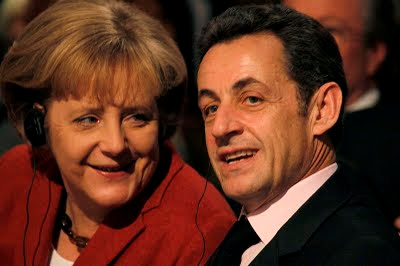Just read this silly article over on CNN and had to throw in my tuppence worth. This section in particular got my goat:
"A spokesman for China’s Foreign Ministry now says the country “respects the choice of the Libyan people” and wants “to play a positive role in rebuilding Libya”.
The translation? Beijing thinks Moammar Gadhafi is about to be booted out and it’s switching allegiance to the folks that may eventually run the country.
Looking at this move through the prism of an oil-sprinkled lens, Beijing’s motivation comes into focus a bit more. China is the world’s second largest consumer of oil after the U.S. And Libya, at peak production, was pumping out a total of 1.5 million barrels a day. And 11% of that went where? You guessed it - China.
Since the conflict in Libya started in mid-February, that oil production has all but dried up. With the potential dawn of a new peace, it stands to reason that China wants to be best positioned with Libya’s leaders, whoever they turn out to be. Ah China, you fair-weathered - albeit very logical - friend."
Yes, 11% of Libya's oil went to China, but the vast majority of the rest of the remaining 89% went to Europe and the US. Before the 17th of February uprising it was EU states and the US who were seeking a closer relationship with the Gaddafi government, and oil firms like Total and Shell that were winning contracts in Libya whilst Chinese oil deals were being blocked. As Juan Cole points out:
"Libya was already integrated into the international oil markets, and had done billions of deals with BP, ENI, etc., etc. None of those companies would have wanted to endanger their contracts by getting rid of the ruler who had signed them. They had often already had the trauma of having to compete for post-war Iraqi contracts, a process in which many did less well than they would have liked. ENI’s profits were hurt by the Libyan revolution, as were those of Total SA. and Repsol."
Basically, whilst the big oil firms had nothing to gain from Gaddafi's downfall, China's leaders had no interest in his continued rule. As I've pointed out elsewhere, the Chinese were no friends of Gaddafi's, whilst it was the leaders of Britain, France, Italy, and the US who enjoyed an unseemly relationship with such a brutal dictator, one which thankfully ended as soon as he opened fire on his own people with heavy weapons.
To say that the PRC was a 'fair-weather friend' of Gaddafi's government is nonsense. In truth Gaddafi had no friends, only various leaders in the US and Europe who were willing to overlook the nature of his government and mouth platitudes so long as it was convenient to do so.
No country's leaders had any great reason to love Gaddafi, but if anyone was close to him, it was the leaders of the countries of North America and Europe, not China.
[Video: Gratuitous Savalas]








